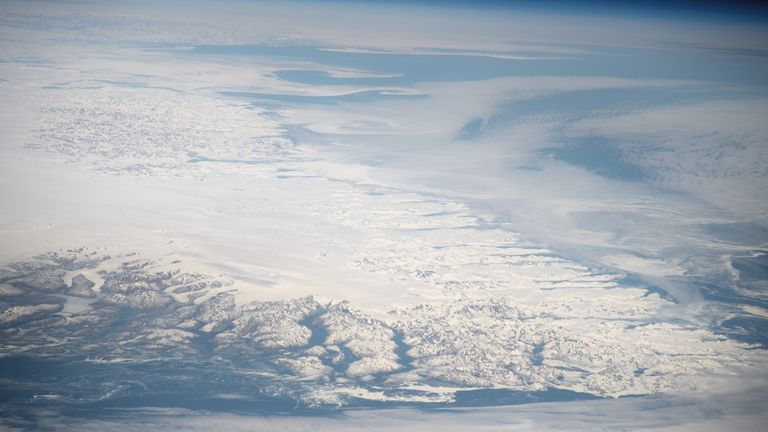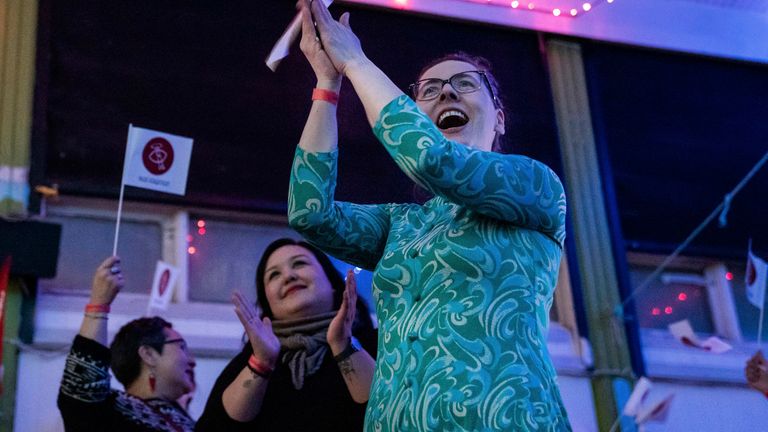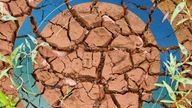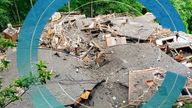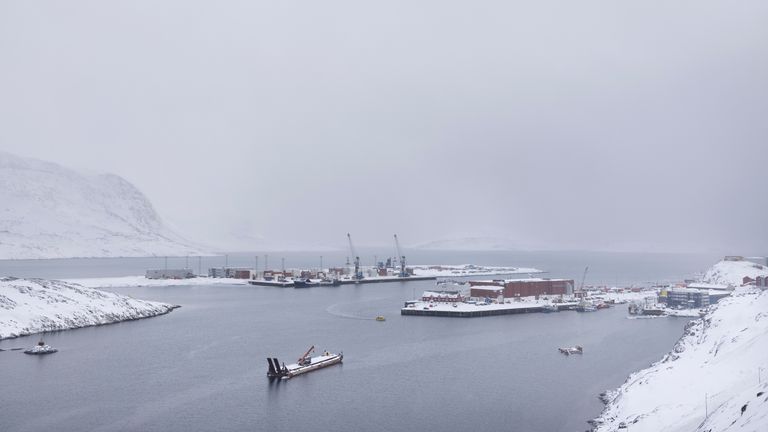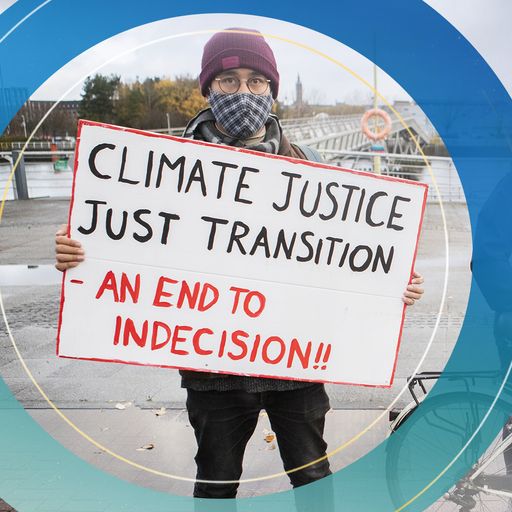Climate change: Arctic mining scheme in doubt as opponents win snap election in Greenland
The largely ice-covered island has the world's largest undeveloped deposits of rare-earth metals, according to geologists.
Wednesday 7 April 2021 14:22, UK
A major mining project in Greenland aimed at exploiting the Arctic island's huge untapped mineral resources has been thrown into doubt following a snap election.
The main opposition Inuit Ataqatigiit (Community of the People) party, which is against the scheme at Kvanefjeld that holds one of the world's largest deposits of rare-earth metals, has become the biggest in parliament following the poll.
It took 37% of the votes, unseating the ruling social democratic Siumut party which secured 29%, official data showed.
Inuit Ataqatigiit (IA) leader Mute Egede, 34, will be first to try to form a new government.
The election was triggered in the semi-autonomous Danish territory after the ruling coalition in the national assembly, the 31-seat Inatsisartut, collapsed due to a political split over the proposed mining project in southern Greenland.
Supporters saw the Kvanefjeld mine scheme as a potential source of jobs and economic prosperity.
The outgoing prime minister Kim Kielsen had pushed to give the green light to mine owner Greenland Minerals, an Australia-based company with Chinese ownership, to start operation.
But the left-leaning IA party had been a staunch opponent of the project, claiming a majority of Greenland's 56,000 inhabitants, most of them indigenous Inuit people, were against the scheme, mainly for environmental reasons.
One of the initial arguments for granting a mining license to Greenland Minerals was that the proceeds from the project would strengthen the island's economy and help the campaign to breakaway completely from Denmark through independence.
But Greenland resident Lise Svenningsen told Danish TV: "In the past, I was very preoccupied with the fact that, of course, we must be independent. And so will we one day.
"But I think that we should focus much more on the conditions of the population, and that politicians should try to act on things they promise year after year."
The largely ice-covered island has the world's largest undeveloped deposits of rare-earth metals, according to the US Geological Survey.
Estimates show the Kvanefjeld mine could hold the largest deposit of rare-earth metals outside China, which currently accounts for more than 90% of global production.
Rare-earth metals are used in a wide number of industries and products, including smartphones, wind turbines, microchips, batteries for electric cars and weapons systems.
In 2019, then US President resident Donald Trump floated an idea to buy Greenland from Denmark for strategic reasons.
The move sparked uproar in Copenhagen and was dismissed as absurd.
However, international interest in Greenland has continued as major powers - the US, China and Russia - race to establish their presence in the Arctic.
Washington opened a US consulate in Nuuk, Greenland's capital, last year as part of a new Arctic strategy adopted by the Trump administration.
Under a 1951 deal, NATO member Denmark has allowed the US to build bases and radar stations on Greenland.
Greenland, the world's largest island that is not a continent, has its own government and parliament, and relies on Denmark for defence, foreign and monetary policies.
Today, Sky News is launching the first daily primetime news show dedicated to climate change.
Hosted by Anna Jones, The Daily Climate Show will follow Sky News correspondents as they investigate how global warming is changing our landscape and how we all live our lives.
Airing at 6.30pm and 9.30pm on TV, and on our digital platforms, the show will also highlight solutions to the crisis and show how small changes can make a big difference.
